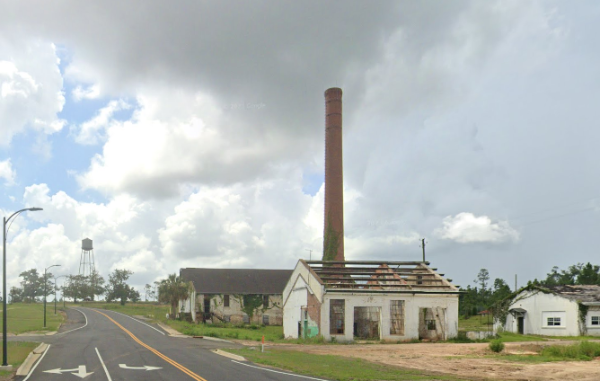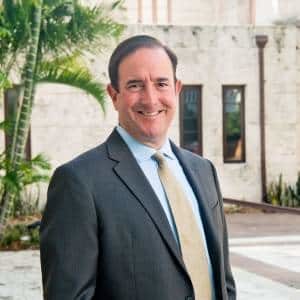
Melvin Wilder, a survivor of abuse at the infamous Florida School for Boys, also known as the Arthur G. Dozier School for Boys, located in Marianna, Florida, has spoken out about the "horrors" he endured while residing at the institution. As a $20 million compensation bill unanimously passed the Florida Senate, Wilder expressed hope that the legislation would provide long-overdue restitution for the hundreds of living abuse survivors, according to a report by Fox 13 Tampa Bay.
Speaking to FOX 13 News outside his residence in West Tampa, the 63-year-old Wilder recounted the traumatic experiences he faced during his time at the state-run reform school for boys. At the age of 13, he was sent to the Dozier School under a court order, hoping to receive rehabilitation. However, upon his arrival in 1973, he quickly realized that the institution offered no such services.
Wilder vividly recalled the near-daily beatings he endured during the early 1970s, disclosing, "One time that I got beat so bad, I've (still) got scars on me. I mean, I bled, just didn't even get medical attention. I've stayed in there two to three months without returning back to my dorm." The physical scars he carries to this day serve as a haunting reminder of the abuse he suffered.
One specific incident continues to haunt Wilder's memory. While tasked with cleaning a bathroom, a staff member barged in and proceeded to assault him mercilessly for not meeting their expectations. Recalling the horrifying encounter, Wilder stated, "Something I did wasn't clean. He knocked me down, kicked me, and asked: 'Did your mama show you how to clean up?'" The staff member then subjected him to a brutal assault using the end of a nearby mop, an act that could have proven fatal had Wilder not moved quickly.
In another distressing incident, Wilder recounted being beaten and confined to a lockup cell after discarding a rotten peach while working in an orchard near the facility. The staff reacted violently to his actions and subjected him to further physical abuse, prolonging his pain and suffering.
Driven by his enduring pain and fear, Wilder took a courageous step to seek help. He left a handwritten distress signal on a state road as he crossed to have lunch, hoping that someone would find it and come to their aid. This act eventually led to his release from the institution after nearly two years. However, Wilder remains haunted by the fact that some of his friends did not survive their time at the Dozier School.
"Some of my friends didn't make it back to the dorm-- guys that were taken out," Wilder lamented. "God knows what happened to them. And I feel like it is my duty as a friend, as a person, as a human, to reach out and try to get some justice for what happened to the boys because they didn't get a chance like I did."
As the $20 million compensation bill advances to the governor's desk, survivors like Melvin Wilder hope that it will provide not only financial restitution but also an acknowledgment of the atrocities they endured during their time at the Dozier School, offering a glimmer of hope for those seeking justice and healing.
Marianna, FL - Over 300 Victims Seek Restitution After Decades of Abuse at Dozier School for Boys

In light of the recent news, we sat down with Florida sexual abuse attorney Michael Haggard, Esq., to discuss the options available for survivors of abuse at reform schools. With a particular emphasis on a $20 million compensation bill that is making significant strides towards approval, Haggard shares his insights on the impact this bill can have in providing restitution for survivors. Gain valuable perspectives on empowering survivors, holding responsible parties accountable, and the potential for justice in the face of unspeakable horrors.
Editor Darla Medina (DM): Thank you for joining us, Mr. Haggard. Can you explain what victims of sexual abuse at reform schools, such as the Dozier School, can do in terms of pursuing civil cases against those responsible?
Michael Haggard, Esq. (MH): Absolutely, Darla. Victims of sexual abuse at reform schools have the option to pursue civil cases against the parties responsible for their trauma. They can file lawsuits against the liable parties, seeking compensation for the physical, emotional, and psychological harm they endured. With the help of an experienced child sexual abuse lawyer, victims take a step closer to seeking justice.
DM: How does the proposed compensation bill play a role in helping these victims obtain the justice and compensation they deserve?
MH: The proposed compensation bill is a significant step towards providing much-needed support for the victims. If passed, it will offer a pathway for financial restitution, acknowledging the suffering they experienced while at the Dozier School and other similar institutions. This bill can provide a sense of validation and help survivors rebuild their lives.
DM: That's encouraging to hear. Could you elaborate on the specific ways this bill can assist the victims?
MH: Certainly. The bill, if approved, would allocate $20 million in compensation for the victims of abuse at the Dozier School. This financial support can help survivors access necessary resources, such as therapy, medical care, and other forms of support that aid in their healing process. Additionally, it recognizes the responsibility of the state in addressing the atrocities committed against these individuals.
DM: Thank you, Mr. Haggard, for sharing your valuable insights on this critical issue.
MH: It's my pleasure, Darla. It's vital that we support these survivors and work towards justice and healing. This bill is an important step, but we must continue the conversation and ensure that all victims have a voice and access to the resources they need to move forward.
 info@legalherald.com
info@legalherald.com